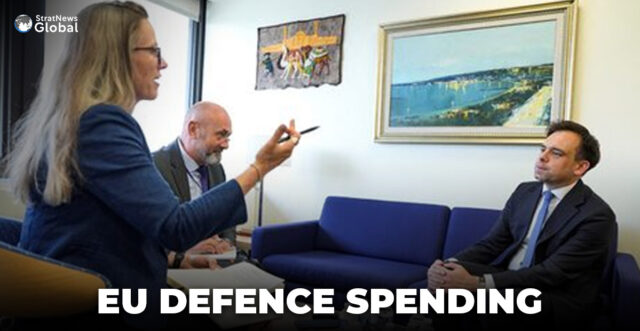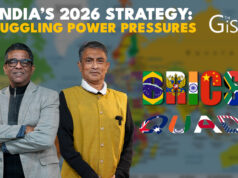Poland is expected to request an exemption from EU borrowing limits next week to maintain high defence spending without violating bloc rules, though it remains concerned that other countries may not take similar steps, Polish Finance Minister Andrzej Domanski said on Thursday.
Apart from Poland, only Portugal has signalled it would ask for the same exemption, a measure the European Commission had hoped would be widely taken up by the 27 EU countries and help boost EU defence investment by 650 billion euros over the next four years to deter a potential Russian invasion.
“We are seriously considering applying for the national escape clause,” Domanski told Reuters in an interview on the sidelines of the International Monetary Fund and World Bank spring meetings in Washington, adding that the decision would be made by the end of April.
EU Defence Spending Flexibility
The European Commission proposed in March to allow each EU country to raise annual defence spending by 1.5% of gross domestic product for four years, without any disciplinary steps that would normally kick in once a deficit is above 3% of GDP. The exemption is called a national escape clause.
But EU countries with high national debt are sceptical of borrowing more to spend on defence, especially if they are geographically distant from Russia.
Italy has said it would not ask for the extra leeway. Spain and France are also sceptical.
“If those countries won’t apply, then it probably won’t happen,” Domanski said of reaching the EU’s spending goal of 650 billion euros ($740 billion).
‘SAFE’ Project
On top of the 650 billion euros of extra national spending, the European Commission proposed that all EU countries jointly borrow 150 billion euros for EU defence projects that would benefit the bloc as a whole – a project called SAFE.
Domanski said Poland, which currently holds the rotating presidency of the EU, treated that joint borrowing project as a priority and planned to finalise it in May. But he also said the amount was unlikely to be enough to secure Europe’s needs.
“Would this be enough? I mean, SAFE on its own? I think it’s not enough,” he said.
EU finance ministers are considering additional ways of raising cash for defence spending, including through a special purpose vehicle or a rearmament bank, but none of these discussions are likely to reach a conclusion soon, Domanski said.
($1 = 0.8783 euros)
(With inputs from Reuters)





